|
|
COM/DCOM
Setting Default COM Security on Windows XP and Windows Server 2003
Note: This topic does not apply to Windows XP Service Pack 2 and later. See Configuring DCOM on Windows XP Service Pack 2.
Default COM security affects all COM applications that do not have launch permissions of their own.
- If authentication is used, client machines that receive events from a DCOM server must include "Everyone" in the default access permissions.
- If authentication is not used, client machines must specify "None" in the default access permissions.
To set default COM security:
From the Windows taskbar, click Start  Run. Run. Type dcomcnfg and click OK. The Component Services window appears.
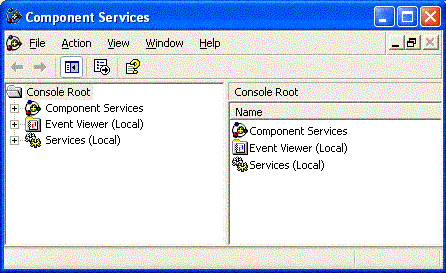
Expand the Component Services folder and expand the
Computers folder. Right-click the My Computer folder and select Properties. Select the Default COM Security tab.
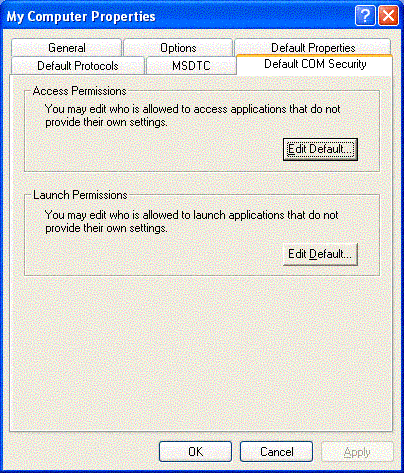
- From the Default COM Security tab, you must edit the Access Permissions and
the Launch Permissions. For details, see the following topics:
Global Access Permissions
To set global access policies for selected users and groups from the Default COM Security tab of dcomcnfg:
In the Access Permissions box, click Edit Default.
The following dialog box appears, showing current registry settings for the Access Permissions:
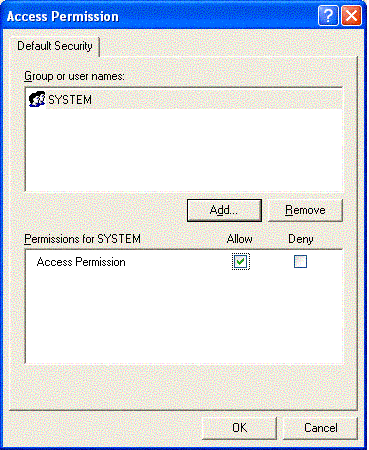
To add users and groups to the list, click Add. The Select Users, Computers, or Groups dialog box appears.
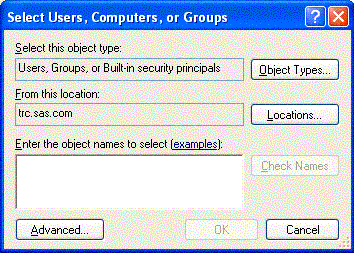
Use the Select Users, Computers, or Groups dialog box to identify the users and groups at your site and the type of access (allow or deny access).
You should also give access permission to System.
For field descriptions, refer to the Windows Help. When you are finished, click OK and then OK again to return to
the Default COM Security tab.
Global Launch Permissions
To set global launch permissions for selected users and groups from the Default COM Security tab of dcomcnfg:
In the Launch Permissions box, click Edit Default.
The following dialog box appears, showing the current registry settings for Launch Permissions.
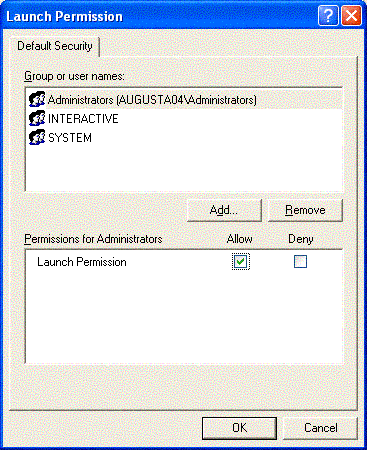
Click Add to add users and groups to the list. The following dialog box appears.

Use the Select Users, Computers, or Groups dialog box to identify users and groups at your site and the type of access (allow or deny
launch access). It is recommended
that you enter the same values that you entered for the Access Permissions.
You should also give launch permission to System. When you are finished, click OK and then OK again to return to the Default COM Security tab.
|




